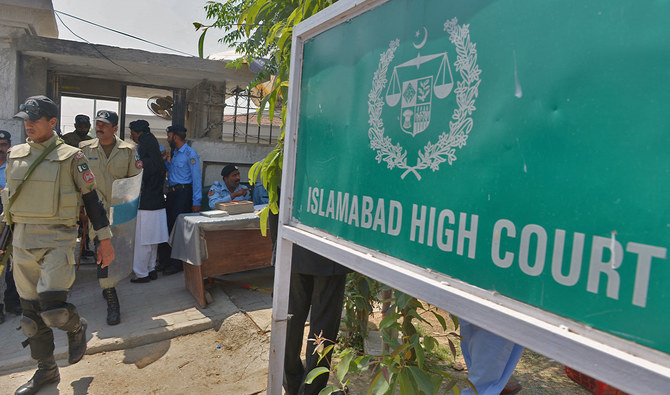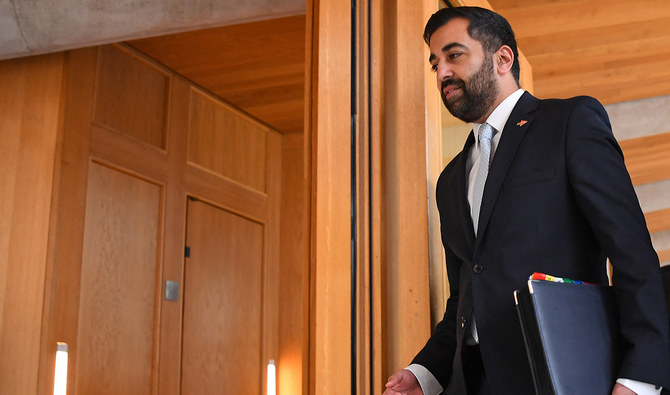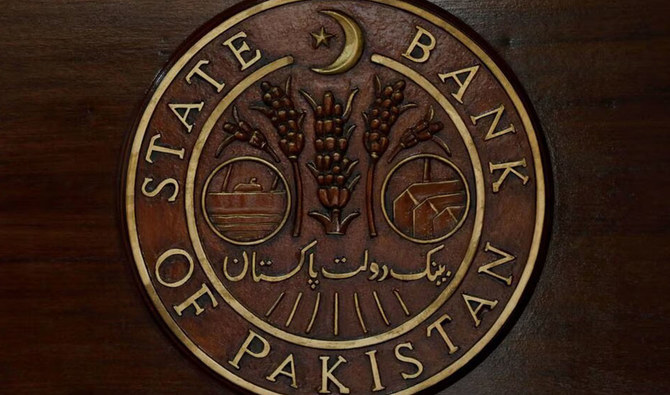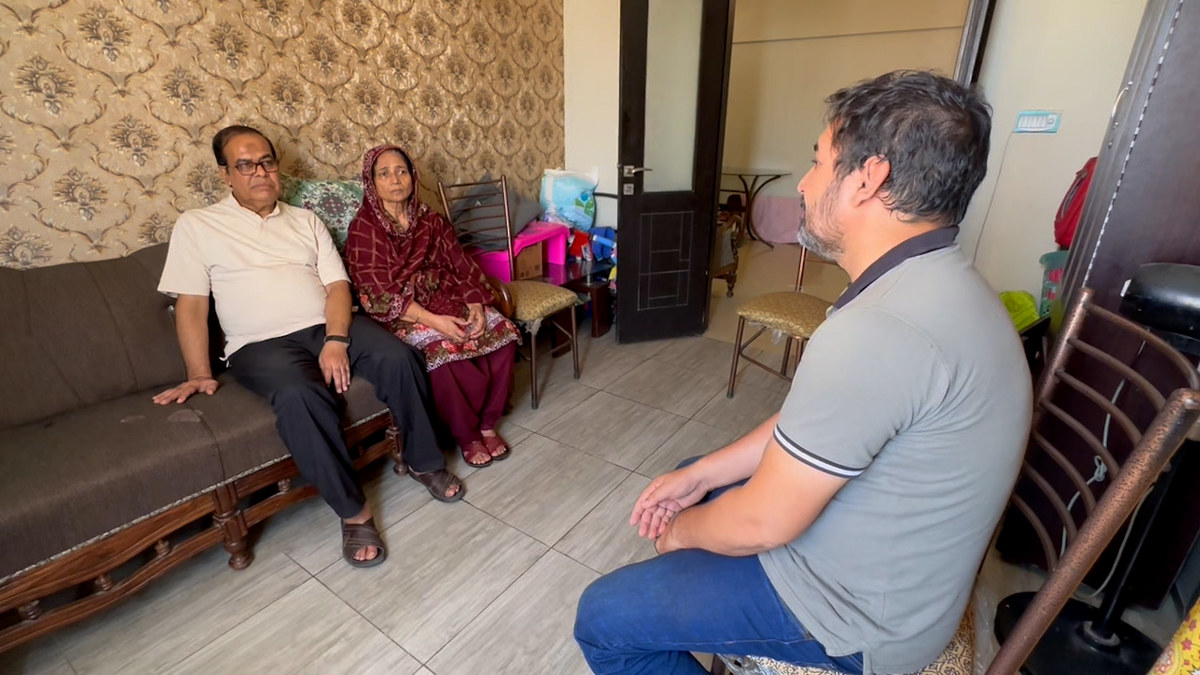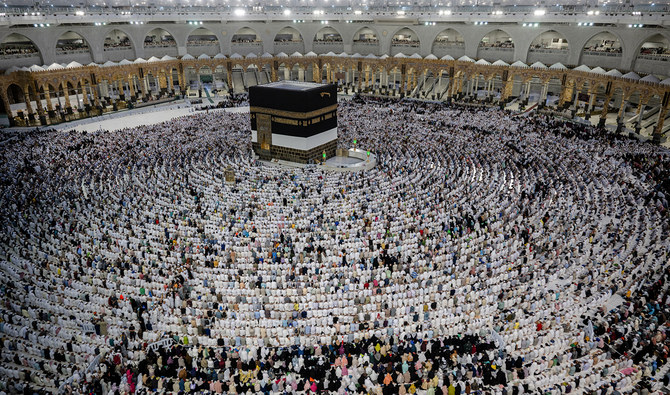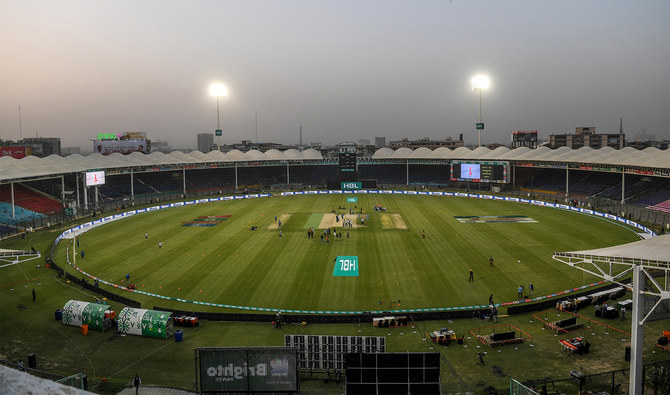ISLAMABAD: Pakistani bar councils and legal experts on Wednesday demanded a probe into allegations leveled by six Islamabad High Court (IHC) judges against the country’s intelligence agencies for interfering in judicial matters, seeking action against those guilty of such unconstitutional and illegal practices.
The development comes only a day after the six judges, out of a total IHC strength of eight, urged the Supreme Judicial Council in a letter to convene a judicial convention over the issue. The judges also cited specific examples of the alleged meddling by the agencies in the judicial affairs in their written request.
Different bar associations in the country asked Chief Justice of Pakistan Qazi Faez Isa to hold a “transparent inquiry” into the matter.
In an open letter, Supreme Court Bar Association Additional Secretary Sardar Shahbaz Ali Khosa requested the chief justice to use his suo-motu powers to take up the issue on his own and conduct a “thorough and transparent (live) hearing” of the case. He also called for an “immediate and rigorous scrutiny” into the allegations.
“The judiciary must be a safe haven for the pursuit of justice, untouched by the shadow of coercion, fear, or undue influence,” he said.
The six judges provided various examples of alleged interference, including a case concerning Pakistan’s imprisoned former prime minister Imran Khan. They informed that when two of the three judges on the bench deemed a plea to disqualify Khan for allegedly concealing his paternity of a daughter as not maintainable, they faced pressure from “operatives of the ISI [Inter-Services Intelligence]” through their friends and relatives.
The judges also mentioned incidents where their relatives were abducted and tortured and their homes were secretly surveilled, aiming to coerce them into delivering favorable judgments in specific cases.
Pakistan’s newly appointed law minister Azam Nazir Tarar was not immediately available for comment.
The Islamabad High Court Bar Association threatened to go on hunger strike and run a “movement if needed for the judiciary’s independence.”
Similarly, the Lahore High Court Bar Association demanded “immediate action against those intelligence agencies and their personnel involved in such nefarious activities and they be punished for undermining and subverting of the constitution and the law.”
The association termed the matter a “serious threat to the rule of law and independence of judiciary” while urging the top judge to take measures to ensure protection of judges of superior courts as well as the subordinate courts.
The Sindh High Court Bar Association also demanded an investigation into the matter and “take firm steps to stop such interference.”
Speaking to Arab News, Justice (r) Shaiq Usmani said the Supreme Judicial Council had the power to summon anybody, examine the record and evidence and record statements of those involved in a matter. He said it should take the lead and investigate the matter raised by the IHC judges.
“The Supreme Judicial Council should record statements of all those involved in this matter besides examining the available evidence to fix responsibility,” he said. “The whole process could be completed in an in-camera inquiry with integrity and without sensationalizing the matter.”
Advocate Shah Khawar said it was “inappropriate” for the judges to write the letter to the Supreme Judicial Council and then make it public.
“If some judges as they claimed were approached or pressured by operatives of intelligence agencies, they should have initiated contempt of court proceedings against them,” he told Arab News.
“The judges should have proceeded against such intelligence operatives for obstructing justice instead of writing the letter to the council for its guidance,” he added.



